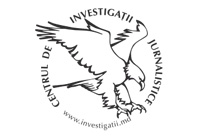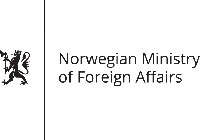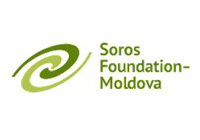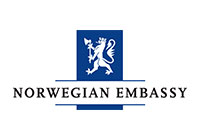.jpg)
Daniel Morar, former chief prosecutor of the National Anticorruption Division (NAD) of Romania and currently judge at the Constitutional Court, stated in an interview for the Anticorruption portal that the fight of the big corruption in Moldova should “start somewhere.” The former head of the NAD also said in this connection that the countries that have had good performance in the anticorruption area are the countries that have let their judges do their work without the involvement of the political that “always has its own interests and the temptation of entering into the work of Justice.” Daniel Morar, surnamed “the fear of the corrupt in Romania,” came to Chişinău to speak about how NAD came to have covetable performance during TEDxChisinau: Crossroads.
Anticorruption: According to a report of the European Union structures, the National Anticorruption Department of Romania is today in the top five anticorruption institutions of the EU. Which were the key actions taken that have led to the success about which the entire press on the other side of the Prut River writes today?
Daniel Morar: First of all, it is about time. Things did not happen overnight. Romania “was enjoying” increased distrust when it signed the Membership Agreement with the European Union and one of the latest chapters concluded was the one related to justice and anticorruption. In this entire equation, given that we already had the Anticorruption Agency with the necessary logistics and related laws in place; the results, however, were late in appearing. Hence, in this entire period the work has been done under the pressure of results and the key are exactly the results. For years we have not had investigations on big corruption cases. The problem was that all prosecutors were mostly focusing on minor cases, which was criticized including by European Commission experts. When the trigger was pulled, the entire NAD reoriented and left the big acts of corruption in its competence. Gradually, results have started to appear in the work of the prosecutors, materialized in conviction and property seizure court judgments. After all, what validates you is the results.
To which factors exactly does NAD owe its efficiency? Is it the transparent procedure of appointment of its chief, integral prosecutors, or maybe the assistance of EU experts?
It is about all of them together. At the beginning there was a favorable external context, related to Romania’s country project – the joining of the EU; however, the international context alone does not help you. If there is no internal political will, in any area, you cannot do anything! The two cannot exist without the proper people to make things happen.
Hence, those who could decide at that moment – the president of Romania, the minister of justice – chose honest people and who were detached from the political zone for the highest positions in the NAD structure. These people, in their turn, created their own team, similarly to the prosecutors passionate about their work.
A part of Moldovan citizens are looking with admiration at what happens on the other side of Prut because more and more officials come into the sight of NAD. What should be done in order for this to happen faster in Moldova?
Exactly what happened in Romania. First, you must start, it should start somewhere. You have an anticorruption institution. From my point of view, the most advanced anticorruption agency should be headed by and formed of prosecutors. Not police officers, not investigators. Why? States have different options where they set up their own agencies. The most advanced ones are the anticorruption agencies in which prosecutors are in the foreground because they are the ones who, according to the laws of the state, can start an investigation, can press charges on people, can send cases to court, can present them there, and then appeal using the means of appeal. If you have an anticorruption agency formed of police inspectors etc., they mandatorily need the intermediation of the prosecutor in order to take the cases to court. From this point of view, NAD was already a privileged institution that righteously raised envy in various states because it is an ideal institution, with prosecutors and judicial police officers who are not in the subordination of the minister of interior but of the chief prosecutor and has its own experts in the IT, economic, banking, customs etc. areas. So, it is ideal to have high performance.
How do we combat corruption at high level in Moldova if the chiefs of institutions meant to fight this scourge are named on political criteria?
We must establish one thing very clearly: politics is one, justice is another. Hence, political criteria should not exist at all. I know it is easy to say and hard to do but those countries that have had high performance in the judiciary and anticorruption are the countries that have let their judges and institutions do their job without the involvement of the political because the political class always has its own interests and the temptation of entering into the work of justice. Having clear separation, i.e. the one named has nothing to do with the political class, such things cannot happen or happen much harder.
Moldova is now in full justice reform. One of the changes made, especially at the insistence of president Nicolae Timofti was the gradual increase in judge salaries. How efficient does this measure seem to you for the eradication of corruption in the judicial system?
It is absolutely necessary but it is not sufficient. In Romania, the magistrates – judges and prosecutors – have some of the highest salaries in the budget system and this can be seen. Adequate salaries in addition to good laws that guarantee independence assure the state that the magistrates do their work – of the justice, of anticorruption, and not of politicians.
If your magistracy is underpaid and dependent on the political factor, it will never be able to advance. In Romania, things are better off from this point of view. There are good laws in place that assure all the independence to prosecutors and judges, plus adequate salaries. Their career does not depend on the political at all but on the Superior Council of Magistracy; hence, everything what performance means depends only them.
Let us say that the significant increase in salaries is the first step. What should follow?
Such laws should be passed that would assure real independence to them. In the entire civilized world there is a dispute over whether the prosecutor should be a magistrate or not. For the most part, this happens in Latin countries – France, Portugal, Spain, Italy. In the north, the prosecutor must be an agent of the Executive or has a special status but is not a magistrate. Ideally, it would have to be magistrate because the magistrate enjoys all the necessary independence. He cannot be changed, moved, sanctioned by the political factor or by the Executive. Accordingly, the separation of powers in the state that modern constitutions set out must work. If you make the corresponding laws for magistrates you give them all the independence they need to assume. From this point on, it depends only on them, and then we switch on to the third step.
What would be the third step?
To be brave, honest – a sine qua non condition, and to be aware of what they have to do, of the fact that they are not there to serve the interests of one or another but to make justice.
Another important aspect is the prosecution reform – Moldova’s backlog that apparently has moved off after it stayed blocked for a long time. In your opinion, how a reformed prosecution should look like?
First of all, as I was saying above, a prosecutor must have the same safeguards as a judge. If you give to a prosecutor the status that shelters him from any political interference because in general the political is showing willingness to intervene over justice, it is very good. If you don’t give them this tool, then you cannot solve things. In addition, in Romania, the prosecutor general and the heads of the NAD and DIOCT, and their deputies are appointed by the country’s president either at the proposal of the minister of justice or, in the case of the chief judge and deputy chief judge of the Supreme Court of Justice, at the proposal of the Superior Council of Magistrates. In Moldova, the prosecutor general is appointed by the Parliament. Of course, systems differ from country to country; however, from my point of view, the best system is the one in which the appointment is done by an authority other than the Parliament. A one-person authority, such as the president of a state, is responsible for the appointments they make. The country’s president, when making a wrong or uninspired appointment cannot blame someone else while a collective body will always say “It was decided so.” There was a problem in Romania during the times of the former president. At least once a year he went to attend the SCM meetings and was asking there often who was responsible of a certain issue. If the answer he was getting was “We” he would say that that was not enough and that it had to be someone specific – one person.
At the beginning of the year, in Chişinău, there were intensive discussions about the fact that you would be a suitable candidate for the position of prosecutor general in Moldova. Did anyone propose to you this position? In which conditions would you have accepted?
I have seen the news story but nobody has talked to me about it or raised this issue. Perhaps it was a discussion among various persons but not with me. I have my job and important things to do.
Nonetheless, how do you like the idea of appointing a foreign prosecutor?
First and foremost, it is a problem of legality. I don’t know if the country’s law allows this because in Romania, in order for one to become prosecutor general, one must first of all be a citizen of the state. This is something that excludes foreign citizens from the beginning.
And if the law allowed it, would appointing a foreign prosecutor be efficient for combating corruption?
From what I know, in the legal systems of the world there is no such possibility. I don’t think there is because this is a very high and a very important function. I will answer with another example: various countries, when they want to make a certain economic branch, they appeal to foreign managers. It works there, because things are not related to the law but to the economic competition. Those who come are from a different area; they are not connected to the local environment and are much less exposed to influences.
In the past years, our criminal investigation bodies have started a number of cases against some former ministers and other high officials for being involved in corruption schemes. For the time being, no light has been poured on any of the cases. In fact, the examination of cases in courts lasts years in a row and we don’t have any officials convicted for such offences. How do we move things off?
In the end, if the cases exist, and they cannot be other than in the prosecutors’ files or on the judges desks, it means that those who are responsible first of all are the persons holding such positions, i.e. the prosecutors and the judges. The cases are with them, so everything depends on them. Regardless of whether a state has an anticorruption agency or not, the competence to investigate such acts belongs to someone – the police and the prosecution, and they are judged by judges. Hence, if they are with them, under no excuse can they blame someone else. I don’t think they do it, I don’t think any of your judges or prosecutors has appeared before the people and said: “I cannot send the case to court because someone influences me.” How can such things unblock? There is public pressure.
In Romania, journalists and NGOs are very active and have always bombed prosecutors with questions about what is happening with the case against X, how long the investigations are taking, when we are planning to complete them.
At the same time, the litigants can complain to the prosecutor’s office for the delay. We have a Superior Council of Magistrates that is entitled to check if a case is delayed in an unjustified manner and can sanction the respective magistrates starting from the mildest sanctions (warning, reprimand) and up to the exclusion from the system. Such things have happened in our country for significant delays in settling cases. Hence, even the judicial system itself can solve the problem, it has the necessary means. Will is needed.
Could you make an appraisal of the relations between Romania and Moldova with regard to the cooperation between their criminal investigation bodies?
My relation with my Moldovan colleagues has many times been at the level of exchange of good practices, experience and, when I was heading the NAD, there were too few that involved cooperation between the justice systems of the two countries. It seems that there is more elaborate cooperation in regard to organized crime that is dealt with by our Division for the Investigation of Organized Crime and Terrorism (DIOCT).
Comments
Donors:






Partners:









